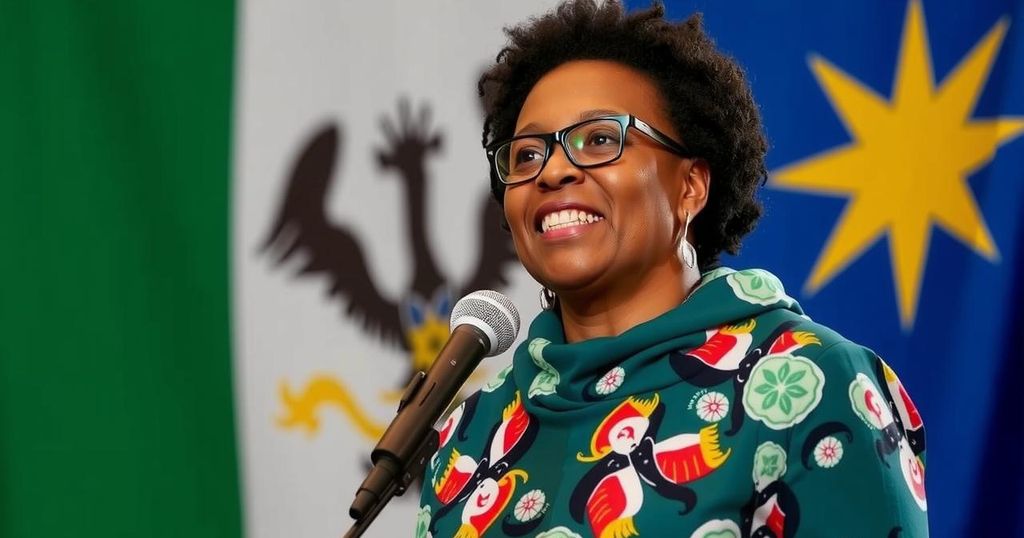Namibia has elected its first female leader, Vice President Netumbo Nandi-Ndaitwah, with 57% of the votes in the recent presidential election. Despite SWAPO’s continued dominance, opposition parties are contesting the election results due to reported technical issues. Opposition leader Panduleni Itula received 25% of the vote, and several parties plan to challenge the process legally.
Namibia has made history by electing its first female leader, Vice President Netumbo Nandi-Ndaitwah, who was announced as the winner of the recent presidential election conducted by the ruling SWAPO party. Nandi-Ndaitwah, aged 72, secured 57% of the votes, contrary to pre-election predictions that suggested the possibility of a runoff. The SWAPO party, which has maintained a grip on power for 34 years since Namibia’s independence in 1990, also succeeded in retaining its majority in the parliamentary elections.
Notably, the election faced criticism from opposition parties due to significant technical issues, including ballot shortages which prompted officials to extend the voting period to Saturday. The opposition claims this extension was illegal and plans to contest the election results in the courts. Despite these challenges, Nandi-Ndaitwah represents a significant milestone in Namibia’s political landscape as the fifth president post-independence and a former participant in the fight for independence from apartheid South Africa.
Fundamentally, the election underscores a momentous occasion for women’s representation in African politics amid ongoing contention over the electoral process’s integrity. Nandi-Ndaitwah rose to the vice presidency following the death of President Hage Geingob while in office earlier this year. The SWAPO party celebrated the victory with the statement, “SWAPO Wins. Netumbo Wins. Namibia Wins. Now Hard Work” on social media, signaling their commitment to governance under the new leadership.
The recent presidential election in Namibia marked a pivotal moment in the country’s history and political evolution. Following its independence from apartheid South Africa in 1990, Namibia has been dominated by the SWAPO party, which has maintained political control for over three decades. The election of Netumbo Nandi-Ndaitwah as the first female president symbolizes a breakthrough in gender representation within a political landscape traditionally marked by male leadership. However, this election also highlights the underlying tensions within Namibian society, as opposition parties have raised serious concerns about the electoral process and its perceived legitimacy, reflecting broader trends of electoral scrutiny in African democracies.
In conclusion, the election of Netumbo Nandi-Ndaitwah as Namibia’s first female president represents a significant advancement for women’s rights and representation in politics. Nevertheless, the controversy surrounding the electoral process and the opposition’s challenge to the results raises critical questions about the integrity of democratic institutions in the country. As Namibia moves forward under its new leadership, the commitment to addressing these issues will be crucial in reinforcing the nation’s democratic framework.
Original Source: abcnews.go.com






